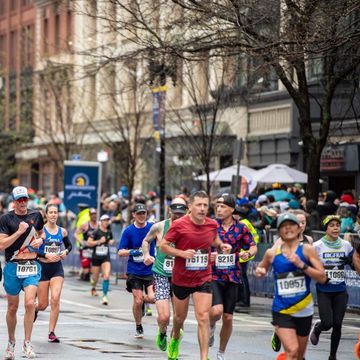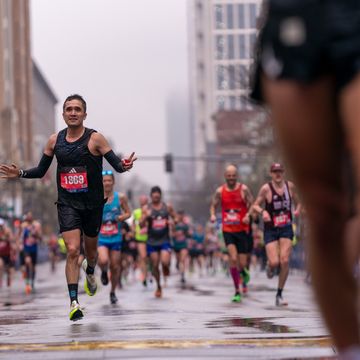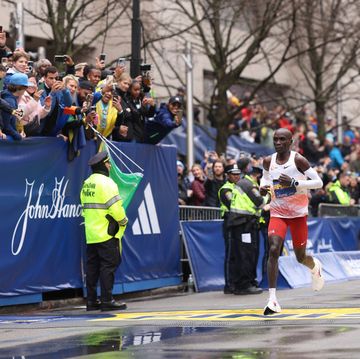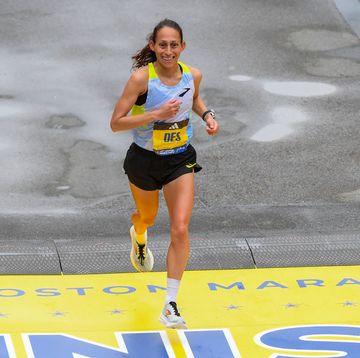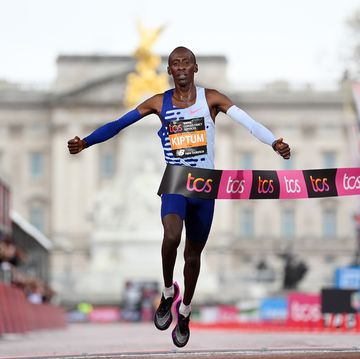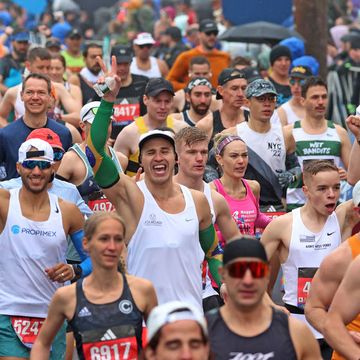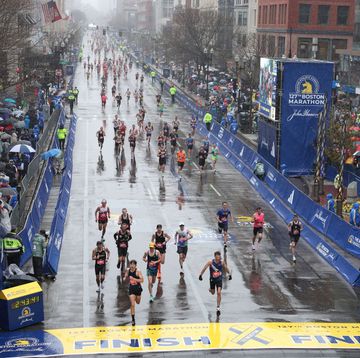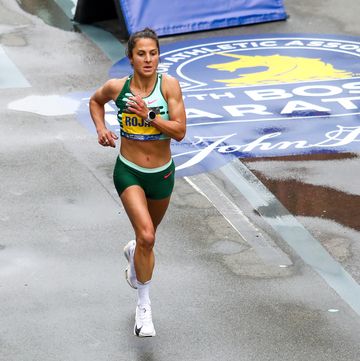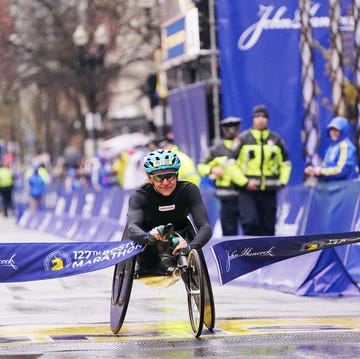Eliud Kipchoge placed sixth at the 2023 Boston Marathon in 2:09:23, more than three minutes behind winner Evans Chebet of Kenya.
After setting the pace through the first 19 miles, Kipchoge lost contact almost immediately when Gabriel Geay of Tanzania surged in the first quarter-mile of the 20th mile. Kipchoge drifted back almost immediately to seventh place, and was never again a factor in the race, although he did move up one spot by the finish.
Before today, Kipchoge, 38, had lost only two marathons in 19 starts. In his second marathon, he finished second at the 2013 Berlin Marathon to the then-world record of 2:03:23 by Wilson Kipsang. In 2020, Kipchoge finished eighth in the London Marathon in 2:06:49, more than a minute behind winner Shura Kitata of Ethiopia.
Get the latest training advice, racing news, and inspirational stories right to your inbox.
In pre-race interviews, Kipchoge downplayed the effects of aging on his performance. And for good reason—he set his second marathon world record, 2:01:09, less than seven months ago in Berlin.
Kipchoge also appeared confident about tacking the unique Boston course because of regularly tackling hilly courses in training. But as has happened so often at Boston, the fastest entrant was not the one to break the tape on Boylston Street.
After finishing, Kipchoge was seen limping slightly and seemed to be pointing at his right foot as he walked through the lobby of the Copley Hotel, which serves as race headquarters. He was not brought to the media center next to the lobby to answer questions.
In a statement provided to the media on Monday afternoon, Kipchoge said, “Today was a tough day for me. I pushed myself as hard as I could, but sometimes we must accept that today wasn’t the day to push the barrier to a greater height.”
Kipchoge also said in the statement, “In sports, you win and you lose, and there is always tomorrow to set a new challenge. Excited for what’s ahead.”

Scott is a veteran running, fitness, and health journalist who has held senior editorial positions at Runner’s World and Running Times. Much of his writing translates sport science research and elite best practices into practical guidance for everyday athletes. He is the author or coauthor of several running books, including Running Is My Therapy, Advanced Marathoning, and Meb for Mortals. Scott has also written about running for Slate, The Atlantic, the Washington Post, and other members of the sedentary media. His lifetime running odometer is past 110,000 miles, but he’s as much in love as ever.



